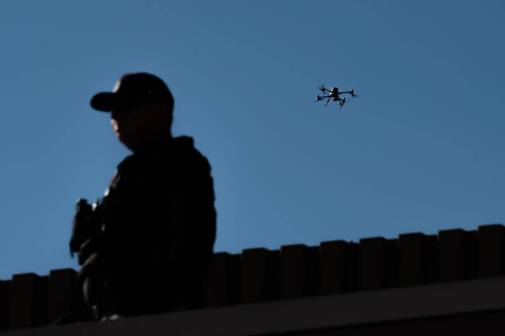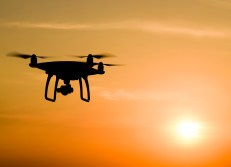New Hampshire close to passing regulations around government drone use

A New Hampshire bill that would set limits around how government agencies and average citizens can use drones is nearly ready to head to Gov. Maggie Hassan’s desk.
A conference committee of lawmakers from the House and Senate issued a report on Rep. Neal Kurk’s H.B. 602 last week, laying out their efforts to come to a compromise on the bill’s provisions.
The chambers will soon vote on the committee’s efforts at compromise — the last procedural hurdles the bill must clear before it goes to Hassan — meaning that restrictions on things like drone-assisted surveillance or the use of the technology near correctional facilities could soon be in place in the state.
Specifically, the bill bars government agencies from using drones to “engage in surveillance, to acquire evidence, or to enforce laws” unless they show probable cause and receive a court order from a judge letting them use the technology to gather evidence. However, the legislation also stipulates that no judge can issue a warrant letting any department use a drone for surveillance for more than 10 days at a time.
The bill also allows for state and local agencies to use unmanned aircraft systems in a variety of emergency situations, letting government workers deploy drones if they feel “swift action is needed to prevent imminent harm to life or serious damage to property, or to forestall the imminent escape of a suspect, or the destruction of evidence, or to assist in locating missing, abducted or lost individuals.”
[Read more: Michigan lawmakers push to clamp down on government drone use]
Agencies would also be allowed to use drones to “counter a high risk of a terrorist attack” and “increase situational awareness” in emergencies, or even “document a specific crime scene, traffic crash scene or other major incident scene” under the legislation. Yet the bill would put a blanket ban on any government workers using a drone “equipped with any kind of lethal or non-lethal weapon.”
No matter the situation where a government uses a drone, the bill requires that any video footage or images of people they collect with the technology be “blurred, deleted, or otherwise de-identified” within 30 days, unless it’s part of a criminal investigation.
The legislation also lays out a host of strictures for private drone users, banning people from using the technology near airports, state and county correctional facilities and pieces of critical infrastructure.
All these changes would go into effect on Jan. 1, 2017, if the bill passes. The House will review the conference committee’s report first, and if it votes to approve it, the Senate will follow suit before the bill can go to the governor.
Should it fail, the effort to set these regulations won’t be completely dead, however. The legislative analytics company FiscalNote found that another bill, S.B. 459, is 91.3 percent similar to Kurk’s legislation, but that bill is considerably farther behind in the legislative process.
But the notion of a state setting some of these limits on drone operations is a controversial subject. The Federal Aviation Administration issued a fact sheet last December warning states and localities to avoid setting rules around where people can fly drones, warning that these sorts of regulations could create a “patchwork quilt of differing restrictions” across the country.
“If one or two municipalities enacted ordinances regulating UAS in the navigable airspace and a significant number of municipalities followed suit, fractionalized control of the navigable airspace could result,” the administration’s lawyers wrote. “A navigable airspace free from inconsistent state and local restrictions is essential to the maintenance of a safe and sound air transportation system.”
The regulators would prefer that states consulted with them before setting any sort of regulation in this area, but they acknowledge that they have the full authority to pass laws governing things like drone surveillance.
Contact the reporter at alex.koma@statescoop.com, and follow him on Twitter @AlexKomaSNG.






